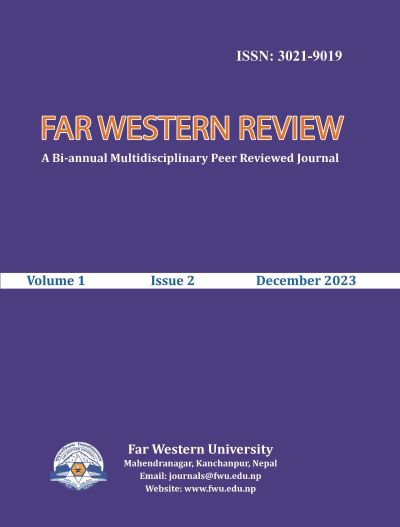The Far West of Nepal as a Remote Area
DOI:
https://doi.org/10.3126/fwr.v1i2.62108Keywords:
Far west, Sudur, Remote areas, remoteness, NepalAbstract
Remoteness, as a subject for multi-disciplinary analysis, remains largely under-studied and under-theorised. Though the idea of remote areas is familiar in Nepal, thanks to the government’s long-running ‘Remote Area Development Programme (1966-2017), there has hardly been any conceptual work on the subject in the Nepalese context. We ask who defines ideas of remoteness and for whom it is an issue. Data were collected through two Focus Group Discussions (FGDs), organized in Bajhang and Kanchanpur in 2022, as well as through interviews, informal discussion, and observations during fieldwork in the region between 2020 and 2022.
The paper suggests that remoteness: (a) is both a fact of geography and a state of mind and culture; (b) thus, is an idea imposed from outside, but also a condition of lived reality; (c) is a relative concept, defined in relation to multi-layered hierarchical power centres located elsewhere; and (d) is a development category. Therefore, we argue, the very notions of ‘sudūr’ and ‘remote’ (durgam) are imposed political constructs, symbolizing (more than spatial position) the loci of power elsewhere, and can have detrimental consequences: persistent neglect, the reproduction of marginalization, and increasing dependency.
Downloads
Downloads
Published
How to Cite
Issue
Section
License

This work is licensed under a Creative Commons Attribution-NonCommercial 4.0 International License.
CC BY-NC: This license allows reusers to distribute, remix, adapt, and build upon the material in any medium or format for noncommercial purposes only, and only so long as attribution is given to the creator.




